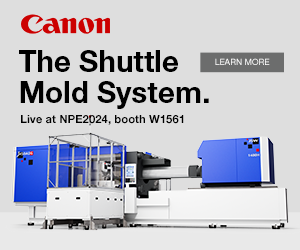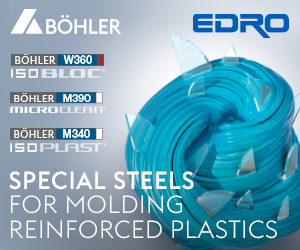The Practical Processor: February 2010
Your processing questions answered
How long should I expect a screw or barrel to last before it needs to be repaired or replaced?
Q. How long should I expect a screw or barrel to last before it needs to be repaired or replaced? - California Film Processor
A. The short answer is: “It depends.” Screws can last 15 years or more, or they can last as little as a few months, depending on the screw design, its materials of construction, and, especially, the material you are processing. Polyolefins without glass reinforcement, fillers, or color are the most benign materials to process, and screws/barrels can last for many years. But as soon as you start adding glass, TiO2, calcium carbonate, or other additives—even in small amounts—screw life will start to decline, and the more you add, the faster the components will wear. In addition, some materials, especially PVC, tend to be inherently corrosive and will shorten screw life, too.
Then, there is the issue of screw design. Grooved feed throats, barrier screws, and screws with a high compression ratios are all intended to improve throughput and enhance melting and mixing, so they are subject to higher shear and stress, which can shorten screw life. In addition, these high-performance screw designs tend to be less forgiving than more conventional configurations. They usually depend on tight clearances between the screw and barrel, so even a little bit of wear can quickly degrade their effectiveness.
This is where materials of construction matter. Inexpensive screws and barrels, normally made of low-alloy steel, offer the least resistance to wear. Chrome plating will inhibit corrosion, but does little to prevent abrasive wear. Flame treating, induction hardening, or ion nitriding can improve wear resistance, but generally these techniques won’t help a screw stand up to really aggressive conditions. Adding carbide or other welded-on hard-facing materials—even just in screw sections prone to high shear and wear—can increase longevity when processing glass and other abrasives. Alloys containing nickel and cobalt can inhibit corrosive wear. In barrels, bimetallic construction accomplishes most of the same things as screw hard-facing.
The key to getting optimum performance out of a screw is to: (a) select a screw designed and manufactured for the materials being processed; and (b) monitor the condition of your plasticating components. Wear can significantly degrade their performance and reduce productivity and profitability.
Jon Kuhman, v.p. of engineering, Glycon Corp., Tecumseh, Mich.
(800) 255-9969 • glycon.com





 (2).jpg;maxWidth=300;quality=90)






